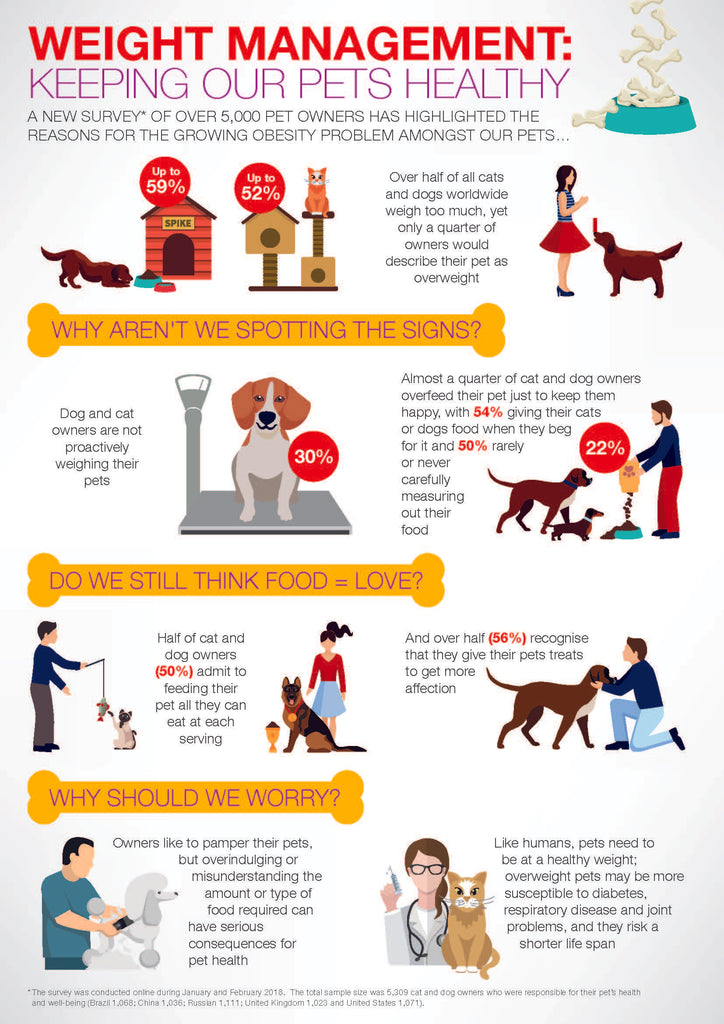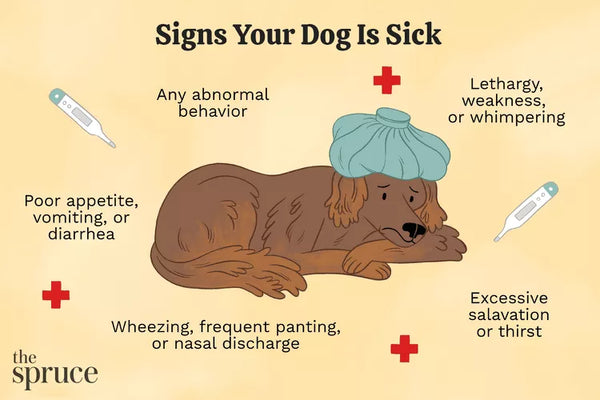AFTERPAY NOW AVAILABLE | NEW YEAR SALES 30% OFF STORE WIDE - CODE "NEWYEAR30"
AFTERPAY NOW AVAILABLE | NEW YEAR SALES 30% OFF STORE WIDE - CODE "NEWYEAR30"

As a pet owner, you want to do everything possible to keep your furry friend healthy and happy. But, knowing where to begin can be challenging, mainly if your pet is showing signs of illness or doesn’t seem like their “normal self.”
The following guide will assist you in understanding common pet health conditions, the signs and symptoms, and recommendations on handling them.
As a pet owner, it's essential to be familiar with the most common health issues that can affect your pet, regardless of whether you have a dog, cat, horse, or any other type of animal. By being aware of these potential health problems, you can take steps to prevent them or detect them early before they become more severe and harder to treat.
Understanding your pet's diet is the first step in providing the best care possible. Every animal has distinct nutritional requirements, so ensure you provide them with a well-balanced diet that includes all the necessary vitamins and minerals for good health.
In addition, look for foods specially made for their species or lifestyle, such as senior diets or puppy formulas, as these are tailored to satisfy their demands. If you need clarification about what kind of food is best for your pet, talk to your veterinarian; they'll be able to provide advice specific to your pet's needs.
Regular exercise is integral to maintaining good health for your beloved pet. Physical activity as such walking helps ton your pet's muscles, strengthens their cardiovascular system, and promotes overall physical and mental well-being.
While outdoor exercise is an obvious option for dogs and other active pets, indoor pets can also benefit from playtime and interactive activities.

Interactive toys like laser pointers and puzzle feeders can stimulate your pet's mind and encourage physical activity in the comfort of your own home. Additionally, you can plan indoor house walks to allow your pet to stretch its legs and explore its surroundings.
These activities provide physical exercise, promote mental stimulation, and prevent boredom. Integrate your pet's exercise regimen with your own daily workout routine. This way, you both maximise your time together.
It's important to remember that the amount of exercise your pet needs can vary based on their breed, age, and overall health. For example, older pets may need gentler exercise, while certain breeds may require more vigorous activities to meet their exercise needs. It's essential to consult your veterinarian to determine the appropriate amount and type of exercise for your pet.
Regardless of how careful we are with our pets' diets and activity habits, they can still fall sick. Understanding how to recognise specific indicators of disease can be essential in seeking treatment sooner rather than later.

So, pay attention when studying your pet's behaviour and look for any changes in their eating habits or overall disposition that don't seem "normal." In addition, keep an eye out for any physical problems (such as pain or discharge from the eyes or ears) that could suggest a more severe problem that requires immediate expert help from a veterinarian.
Many pets also suffer from severe health issues, including cancer and arthritis. These ailments can cause chronic pain, lethargy, and difficulty performing daily tasks. Other concerns, such as fleas and ticks, can also plague pets if you're not vigilant.
Regular vet checkups are essential to diagnose potential issues early on and provide the necessary treatments to ensure your pet's best quality of life.
In addition to illnesses that require fast veterinary intervention, some minor issues can easily be managed at home by taking basic procedures such as bathing regularly or brushing teeth daily, if required.
Remember that different breeds may have varied grooming needs, so research what works best for each type of animal before attempting any treatments yourself. It's also crucial not to overlook your pets' overall mental health since stress and worry can lead to behavioural disorders that owners should regularly watch.
Being a responsible pet owner involves understanding common pet health concerns, recognising symptoms of illness, providing a well-balanced diet, regular exercise, and proper grooming. It is also essential to keep up with routine checkups and seek veterinary care as soon as possible if your pet shows any signs of illness or discomfort.
However, your first port of call should always be your local vet if you ever have any concerns. When it comes to the health of your animals, it’s best to be safe than sorry.